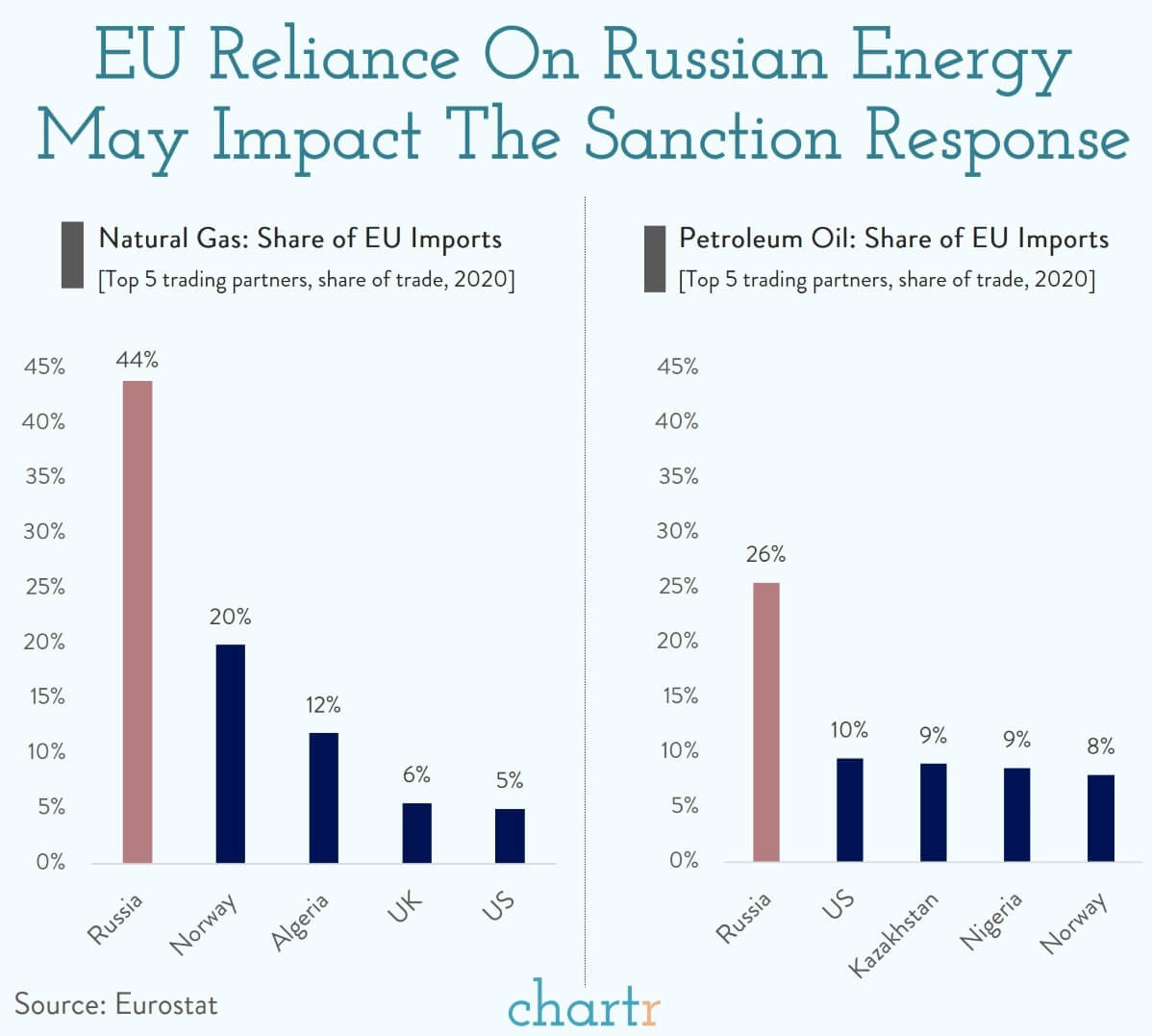In recent days few words have been used as much as "sanctions". As one of the easiest ways to deter Russia, without risking escalation, the list of announced sanctions has been getting longer and longer. The hardest hitting sanctions would be to boycott Russian gas or oil exports, or cut them out of key financial infrastructure like SWIFT.

The issue for some countries in Europe is their reliance on Russian gas and oil. In 2020 Russia accounted for more than 40% of all of the European Union's gas imports, and more than one-quarter of the petroleum oil imports (source). That dependence may impact the willingness of certain European countries to impose harsher sanctions on Russia, for fear of retaliation.
Of the larger economies, most exposed are Hungary, Czech Republic, Italy and Germany — each of which relies on Russian gas significantly (per this great chart from The Economist).